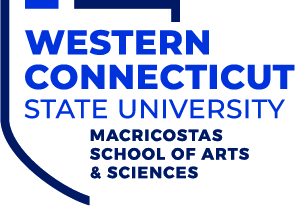
Dr.Sean Murthy
Director of Data Science & Systems Lab
Associate Professor, Department of Computer Science
This is the final faculty interview conducted and written by a talented WCSU MFA student, John Bonanni. Our goal is to celebrate and learn from some of WCSU’s dedicated teachers and scholars.
Those of us who have been overcome with the struggle to understand the nature of computing can seek the refuge of Dr. Sean Murthy, Assistant Professor of Computer Science and Director of the Data Science and Systems Lab (DASSL, read dazzle), a research lab for data science and data-intensive systems.
Dr. Murthy offered a comprehensive discussion defining the scope of the discipline. He feels entering students possess an inaccurate view of the subject, having been exposed to the “Hollywood notion of what programming is about.”
To remedy the issue, Dr. Murthy encourages the potential student to think deeply about selecting Computer Science (CS) as a major. He encourages students to complete at least the first two courses. He then asks a simple question. “Why do you want to take CS?” Many respond, “I like games.” The professor then offers an analogy that succinctly defines the credibility of the discipline. He offers the yarn of driving a car for 30 years without an accident. He indicates that he is a good driver, and he likes to drive, but that does not make him an automobile engineer.
The defining word is “engineer,” and achieving competency in using “professional tools and implementing them in a professional manner.”
As an accomplished architect of software used in Fortune 100 companies, Dr. Murthy emphasizes the need for the student to engineer software, which requires “discipline, patience, thinking, and deliberation on the part of the practitioner.” The professor’s detailed approach to achieving competency in the field is apparent in his overview. He imparts the notion that CS students are problem solvers, not gamers. Students must understand the problem before they can solve it. That requires the student’s understanding of the industry in which the problem exists. He reminds them that “every software is implementing a solution,” making “software-engineering necessarily interdisciplinary.”
Dr. Murthy follows a philosophy of “democratizing access” to improve accessibility and availability, making students their own time managers in learning and assignment submissions, and still have a physical campus connection. This synergy between online and in-class applications consists of making courseware accessible on OneDrive, and making tools accessible at locations others than just the computers in assigned classrooms.
In a data-management course that was using a commercial database system available from only the 20 computers in the classroom. With 40 students enrolled (two sections), availability was generally low, being rather poor especially the night before assignments were due. To address this problem, Dr. Murthy worked with 2 volunteer students and replaced the proprietary system with a new, home-grown, free, and open-source system called ClassDB, which he has made usable from any computer on campus and on students’ own computers anywhere.
Dr. Murthy just completed negotiations with Microsoft to provide normally cost-prohibitive tools free of charge to CS students, faculty and staff. This arrangement lets students install professional tools on their own computers to complete assignments and to practice, making them better prepared as potential hires.
Dr. Murthy is convinced that embracing technology in designing courseware, teaching, and interacting with students has increased efficiency, clarity, and connection to the contemporary environment of the student.
Interview conducted by John Bonanni & Ronald Samul
Author Bio: John Bonanni spent the last forty years in the theatre on tour, on Broadway, at Radio City Music Hall and many places in between managing every sensitive personality he encountered. He now writes about them, among other things. His articles have appeared in Adelaide Literary Magazine, Inspired Living Magazine, and Senior Outlook Today. He is currently enrolled in the MFA in Creative and Professional Program at Western Connecticut State University. theliteraryfish@gmail.com